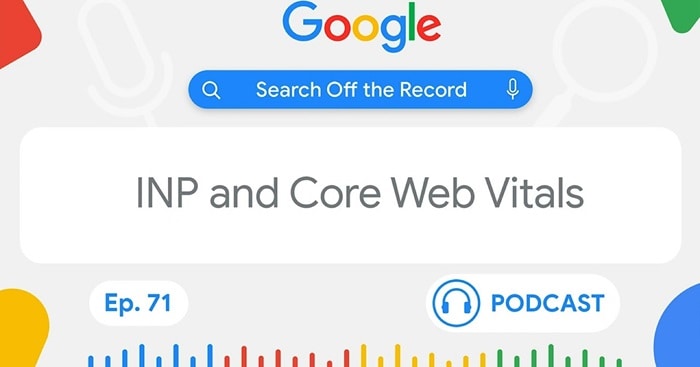On the Google Search Off the Record podcast, the topic of Core Web Vitals took center stage, with much attention drawn to the fact that while they are a ranking factor, they will not much affect search visibility. The podcast went on to explain how CWV could be a ranking factor and not actually affect rankings much.
Rick Viscomi, an engineer and Web Performance Lead at Google, and Lizzi Sassman, a Senior Technical Writer at Google indicated that real-world user experience matters more about a website rather than CWV scores.
Sassman shared experiencing frustratingly inconsistent CWV scores while testing the documentation for Google’s Page Experience. That fact led her to share that Google scored only 45 out of 100 according to its own documentation.

Viscomi emphasized that the real user experience of browsing a website holds greater significance than numerical scores.
“… I think this is such a common cause of confusion because developers see one single number and it’s red.
It’s scary. Do I need to panic?
I get this question all the time and I say ‘What really matters is what your real users are experiencing.’”
The majority in the search community have acknowledged the insignificance of stressing over CWV scores. These metrics serve well as a yardstick for measuring performance concerning optimization for sales, ad clicks, and conversions, where a positive user experience directly translates into tangible benefits.
Despite CWV being integrated into ranking systems, John Mueller points out that marginal enhancements in CWV scores won’t manifest noticeable changes in search results. This might seem contradictory initially, but the coherence becomes clearer within its contextual framework. Mueller’s team’s dialogue with the search team unveiled that CWV is indeed factored into Google’s ranking and search systems, substantiating its inclusion in Google’s documentation.
“…we do say we do use this in our ranking systems or in Search systems.”
Mueller further mentioned that having good CWV scores won’t yield any great impact on search results. He clarified that the omission in that assertion lies in recognizing CWV as merely one component of a larger ranking algorithm, the specifics of which Google does not disclose.
He elaborated:
“I think a big issue is also that site owners sometimes over-fixate on the metrics themselves… And then they spend months of time kind of working on this. And they see this as they’re doing something for their Search rankings. And probably a lot of those incremental changes are not really visible in Search.”
And here’s the segment where he mentions that the intricacies of how CWV serves as a ranking factor are intentionally kept undisclosed from SEOs and publishers.
“We typically avoid delving into the specifics. We refrain from discussing thresholds or similar details. It’s akin to our approach with other ranking factors, such as the optimal word count on a page, which, in my view, are of secondary importance.”
Hence, the key insight isn’t merely acknowledging CWV as a ranking factor; rather, it emphasizes the importance of enhancing CWV while realizing that achieving perfect scores won’t translate into improved rankings.
Discussing Core Web Vitals, this following section delves into an intriguing perspective. It underscores the significance of speed both in a broader, holistic context and then refines its focus to the narrower realm of ranking, discussing factors that truly impact outcomes.
Speed is beneficial generally and other factors are crucial when considering ranking specifically. Rick Viscomi elucidates the importance of web performance in the broader context:
“It’s really good for everybody and the rising tide lifts all boats. Check your website. Make it faster. Eat your vegetables.”
Then Lizzi Harvey suggests that a more productive allocation of time involves concentrating on content quality, pinpointing it as the specific area for enhancing rankings.
She remarked:
“Yeah focusing on that and then still having like a terrible article like the words on the page are not good or the design is not good and you made it really fast. Okay. Is that really going to make an improvement for your users or for search?”
It appears that Search Off the Record didn’t initially intend to discuss CWV in terms of a broader, overarching concern versus content, which is a more focused factor for ranking. However, the podcast naturally evolved in this direction, offering a coherent way to conceptualize Core Web Vitals as a holistic factor. This approach aids in understanding how something can influence rankings without directly impacting search results.
Would you like to read more about “Google Explains Why Core Web Vitals Doesn’t Improve Rankings” related articles? If so, we invite you to take a look at our other tech topics before you leave!
Use our Internet marketing service to help you rank on the first page of SERP.
![]()













